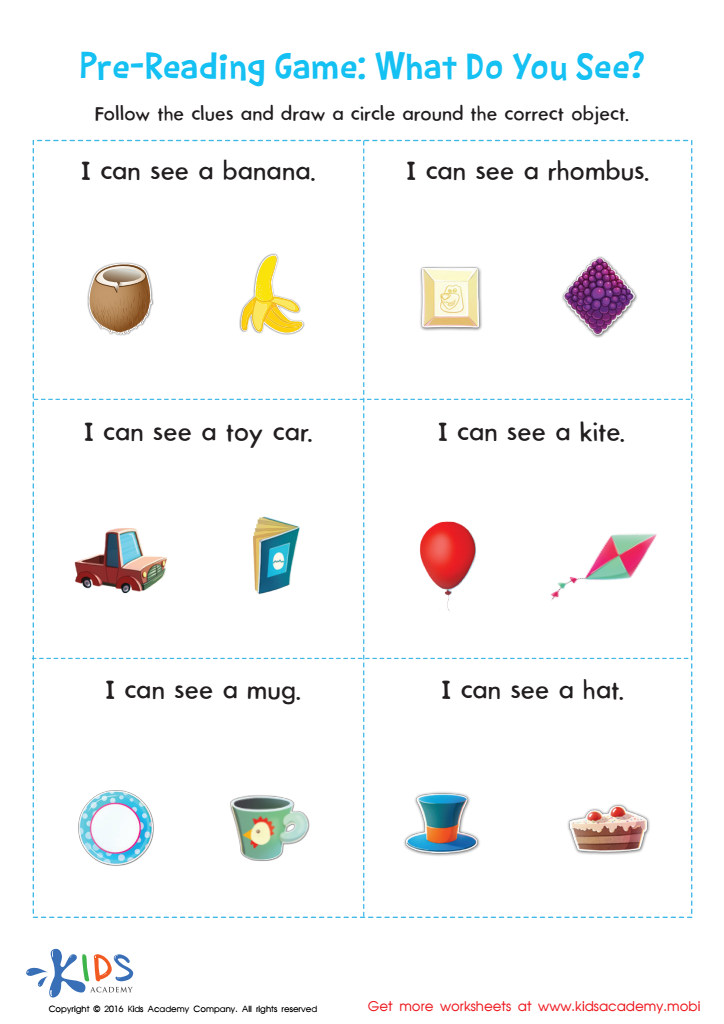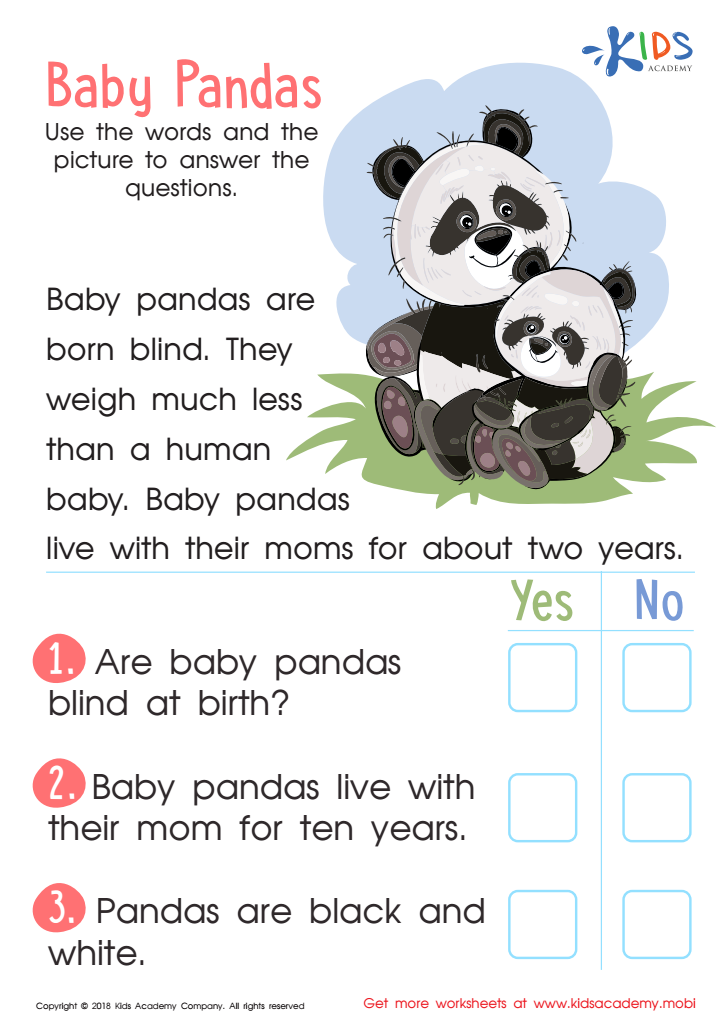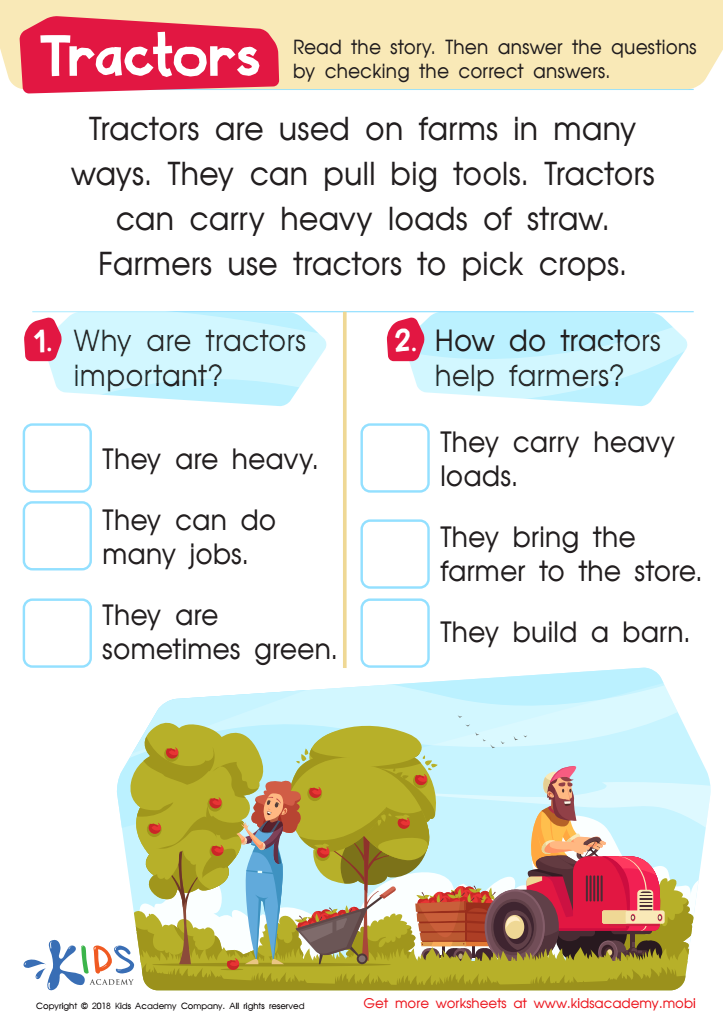Counting practice Reading Non-Fiction Worksheets for Ages 4-9
4 filtered results
-
From - To
Enhance your child's learning journey with our Counting Practice Reading Non-Fiction Worksheets, designed for ages 4-9! These engaging worksheets blend essential reading skills with fun counting activities, fostering a love for both literacy and numeracy. Young learners will explore fascinating non-fiction topics as they practice counting objects, reinforcing their understanding through real-world contexts. Perfect for home or classroom use, our resources promote critical thinking and encourage curiosity. With colorful illustrations and age-appropriate language, these worksheets offer an interactive way for kids to strengthen their reading comprehension and counting skills. Start cultivating a well-rounded educational experience today!


Pre–reading Worksheet: What Do You See?


More Octopus Facts Worksheet


Baby Pandas Worksheet


Tractors Worksheet
Counting practice and reading non-fiction are essential components of early education for children aged 4-9. These skills are fundamental as they lay the groundwork for critical thinking, vocabulary development, and real-world understanding.
Firstly, counting practice enhances a child’s numerical literacy, fostering an early understanding of mathematics. This foundational skill not only aids in simple arithmetic but also helps children make sense of quantitative information, which is vital in everyday life. The ability to count and recognize numbers fosters confidence and encourages logical reasoning.
On the other hand, reading non-fiction exposes children to a wealth of factual information about the world around them. It nurtures curiosity, as children explore diverse topics such as science, geography, and history. This genre promotes comprehension and critical thinking skills, encouraging young readers to analyze and interpret information.
Moreover, combining counting with non-fiction reading creates opportunities for experiential learning. For example, counting animals in a non-fiction book about wildlife engages children and reinforces both their counting and reading skills. Thus, by prioritizing these practices, parents and teachers equip children with the tools they need for future academic success and lifelong learning. Engaging with these activities fosters a love for learning that can last a lifetime.
 Assign to My Students
Assign to My Students















